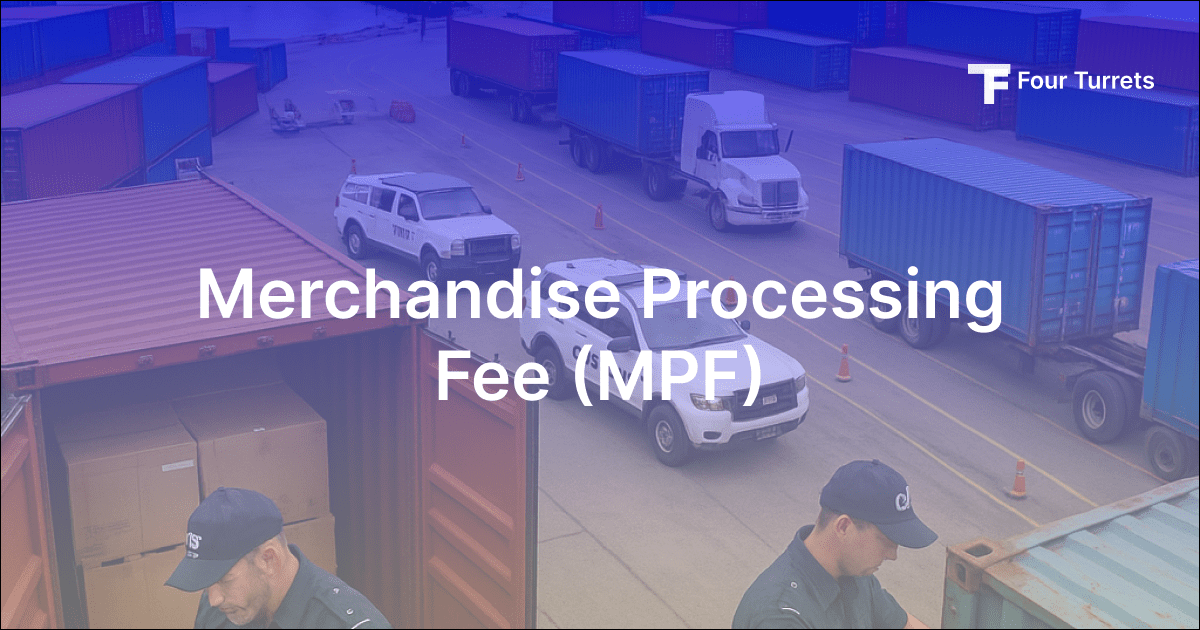When importing goods into the United States, understanding the Merchandise Processing Fee (MPF) is essential for compliance and cost management. The MPF, assessed by U.S. Customs and Border Protection (CBP), applies to most shipments and is a key consideration for importers, custom brokers, and businesses engaged in global trade.
What is the Merchandise Processing Fee (MPF)?
The Merchandise Processing Fee (MPF) is a fee charged by CBP to cover the administrative costs of processing merchandise entering the U.S. This fee applies to most imports, regardless of the country of origin, and is assessed on both formal and informal entries. The MPF is not a tariff but a user fee, distinct from duties or other taxes.
How is the MPF Assessed?
The MPF is calculated based on the declared value of the merchandise in a shipment. For formal entries (typically shipments valued over $2,500), the fee is a percentage of the value, subject to minimum and maximum limits. For informal entries (shipments valued under $2,500), a flat fee is charged.
MPF Rates for Formal Entries
- Rate: 0.3464% of the declared value of the merchandise
- Minimum Fee: $31.67 per entry
- Maximum Fee: $614.35 per entry
MPF for Informal Entries
- Flat Fee: $2.37, $6.11, or $9.42 per shipment, depending on the entry type and method of transport
Exemptions from the MPF
Not all shipments are subject to the MPF. Exemptions include:
- Goods qualifying under certain Free Trade Agreements (FTAs), such as USMCA, CAFTA-DR, and others, provided the shipment meets the agreement’s rules of origin.
- Shipments where the value of the merchandise is under $800 (de minimis threshold).
- Certain U.S. government imports and specific categories as defined by CBP.
Why Does the MPF Matter in Global Trade?
The MPF is a significant cost consideration for importers, especially those with high shipment volumes or high-value goods. Understanding how the fee is assessed and when exemptions apply can help businesses optimize their import strategies and reduce unnecessary expenses.
Role of the Custom Brokers
A custom broker plays a vital role in ensuring accurate MPF assessment and compliance with CBP regulations. Brokers help importers classify goods, determine eligibility for exemptions, and manage documentation to avoid costly errors or delays.
Conclusion
The Merchandise Processing Fee (MPF) is an essential aspect of importing goods into the United States. By understanding how the MPF is assessed, knowing the exemptions, and working with a knowledgeable custom broker, importers can ensure compliance and manage costs effectively.
Want to get started with your exports? Talk to Four Turrets team for Export Marketing services to know more!
FAQs
What is MPF in importing?
The MPF is a fee charged by CBP to process imported merchandise. It applies to most shipments entering the U.S. and is calculated based on the value of the merchandise or as a flat fee for informal entries.
Which goods have MPF exemptions?
Goods qualifying under certain free trade agreements, shipments valued under $800, and specific government imports are exempt from the MPF.
How to calculate MPF value?
For formal entries, multiply the declared value by 0.3464%, ensuring the fee falls between the minimum and maximum limits. For informal entries, apply the relevant flat fee based on the shipment type.







